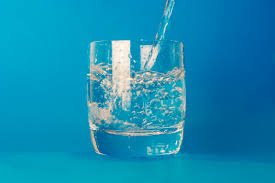Most likely, you’ve heard the terms hard water and soft water, but don’t exactly what those terms mean or what the difference between the two are. They might know hard water is generally labeled as “bad” and soft water is considered “good”, but that’s about it.

So, what are the differences between hard and soft water?
More importantly, why is hard water considered bad and soft water generally more desirable? Hard water is water that contains appreciable amounts of dissolved minerals like magnesium and calcium. Soft water on the other hand, only contains one mineral, salt. As rainwater makes its way into the ground, it is initially soft water. However, as the water descends into the ground, it picks up minerals from the ground like chalk and lime, but mostly calcium and magnesium. It is this water that eventually becomes part of our waterways.
Pros of hard water
Hard water is actually a great source of drinking water, with essential minerals that humans need. Unfortunately, what is good for drinking is not necessarily good for household uses of water. Hard water makes clothes look dingy, it is difficult to get a good lather formed when using soap or shampoo, and bathtubs and shower stall doors can easily become caked with soap scum and film when using hard water. Appliances that use water such as irons, dishwashers and coffee machines eventually get a build-up of minerals if used regularly with hard water. If the build-up is severe enough, the appliance might not work properly.
Pros of soft water
Since soft water is easy on appliances and reduces the need for soap, shampoo and detergents, most families opt for soft water. However, those on a low-sodium diet or individuals with heart or circulatory problems might want to consider other alternatives besides soft water, since it does have a higher level of sodium. Some other options are reverse osmosis, distillation and deionization systems.
If you would like a test to determine the mineral content of your water, please contact us.
If you are in Columbia, MO or the mid-Missouri area and believe you have a plumbing problem, contact us.



